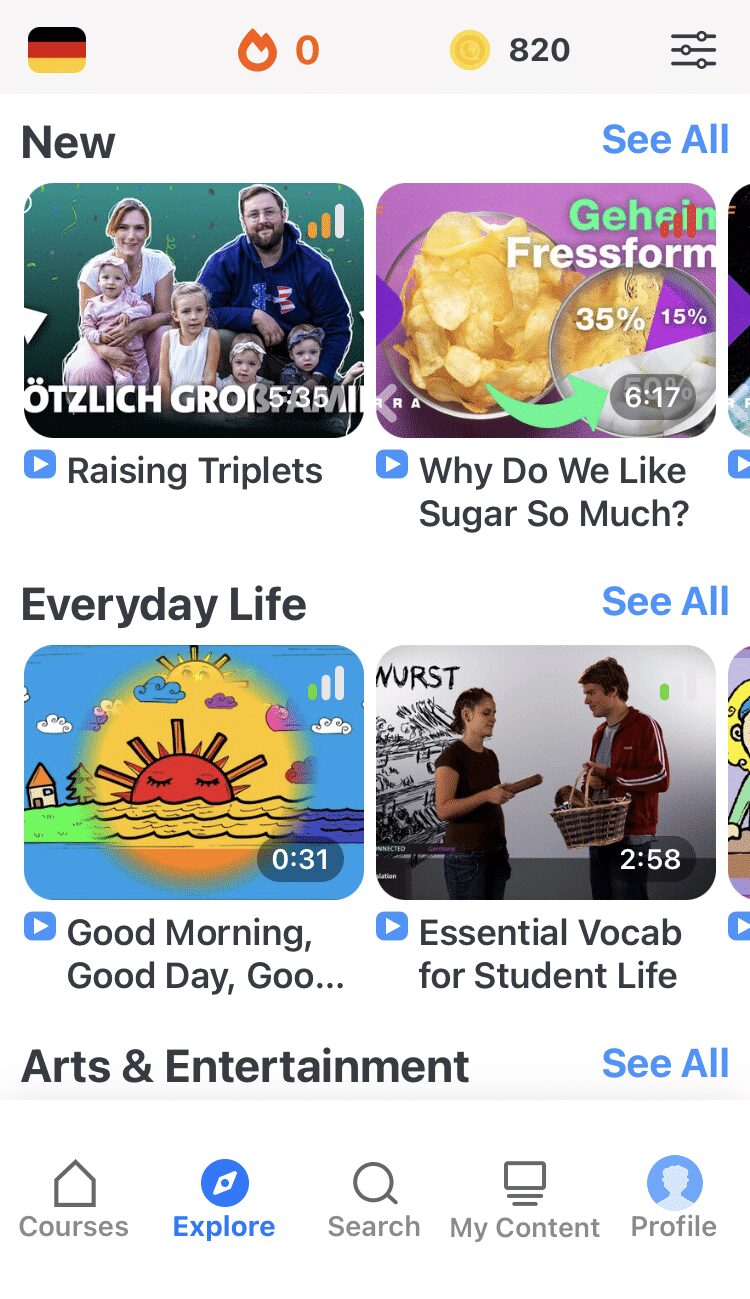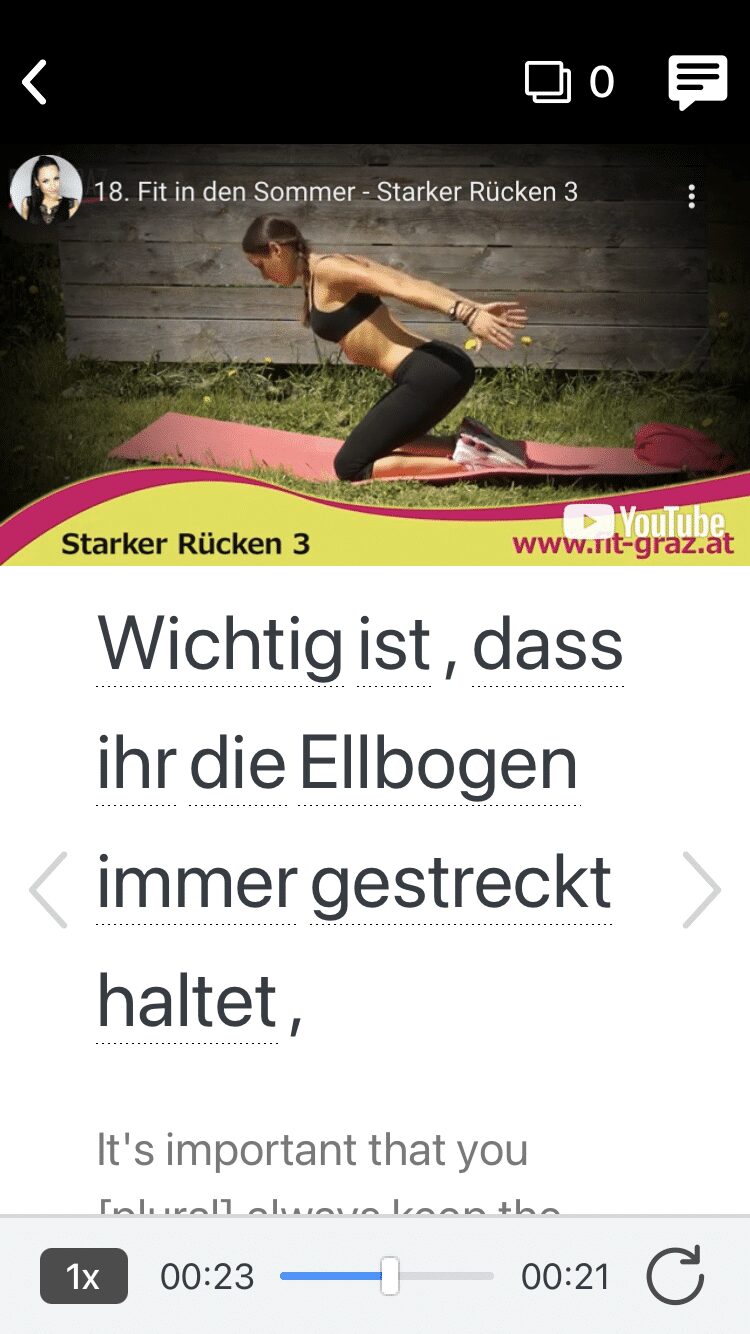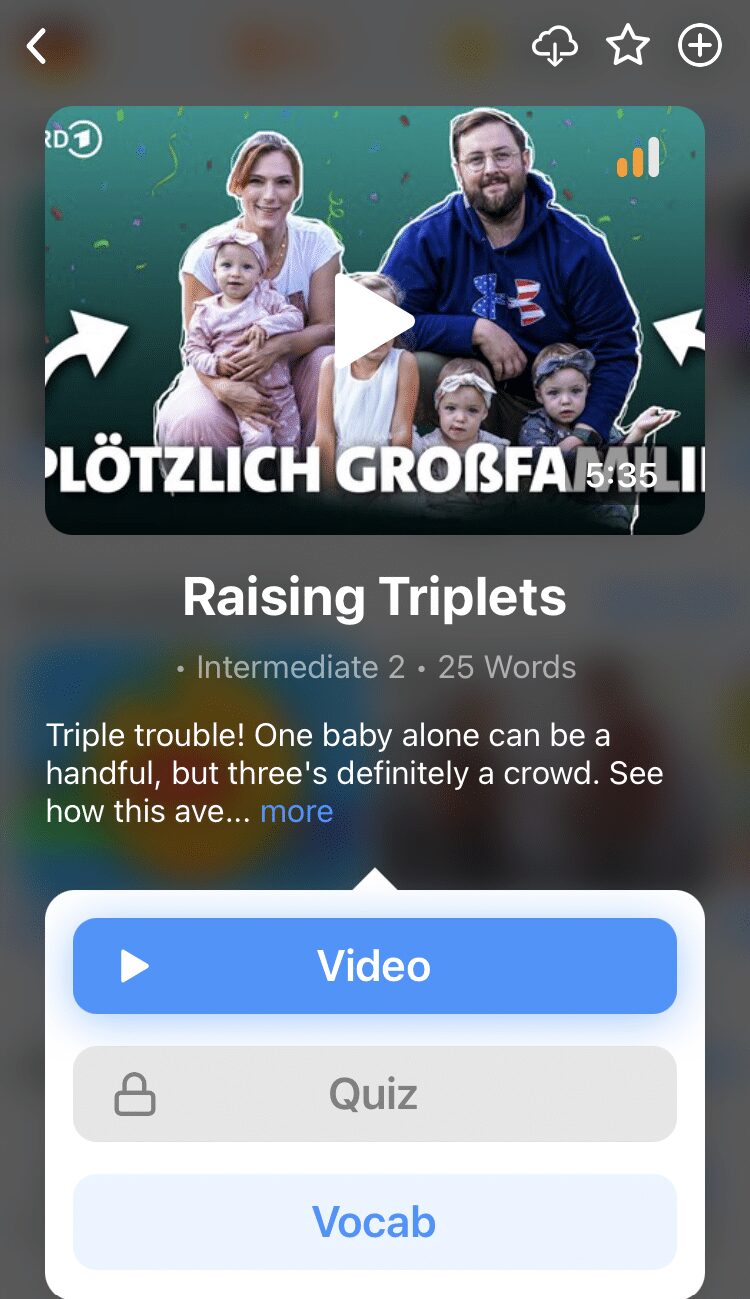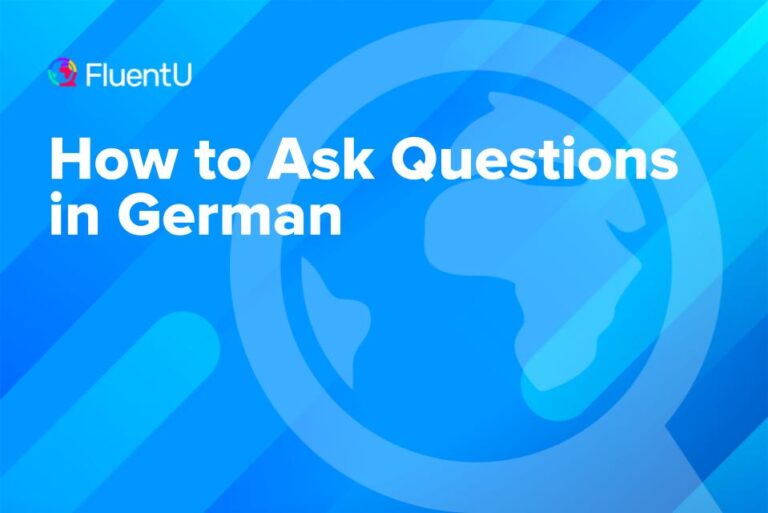Contents
- How to Express Emotions in German
- Adjectives to Describe Feelings in German
- Verbs to Talk About Feelings and Emotions
- German Nouns for Feelings and Emotions
- Phrases to Express Your Feelings in German
- German Idioms and Slang for Expressing Emotions
- How to Practice Your Feelings Vocabulary
- And One More Thing...
Emotions in German: 141 Words and Phrases
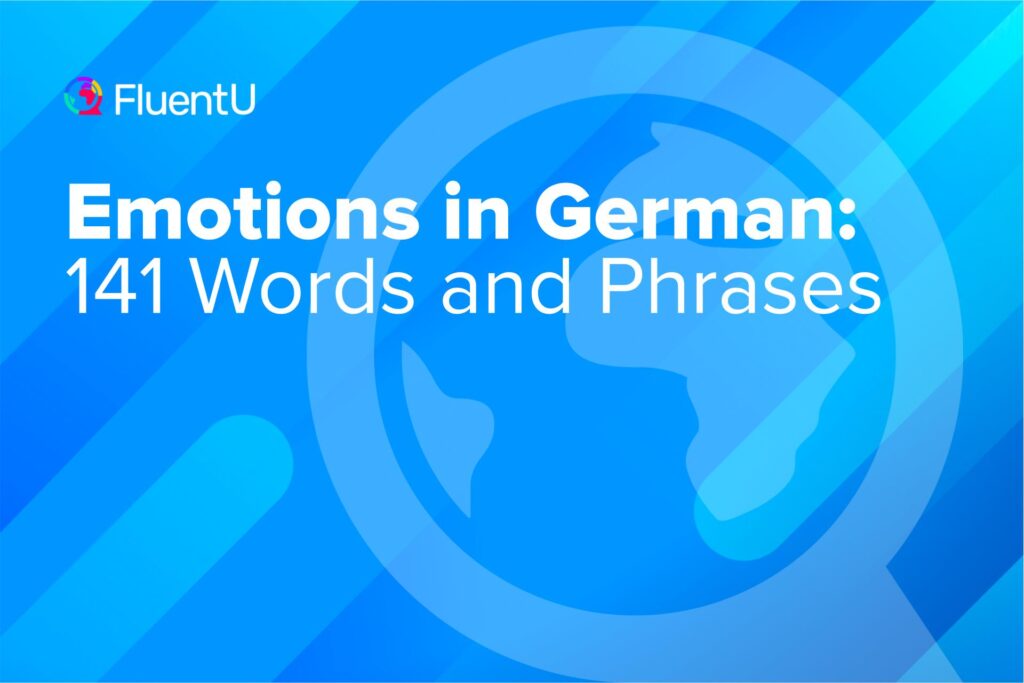
German can be a wonderfully expressive language.
To help you fully express yourself, we’ve put together a list of useful words and phrases for talking about emotions in German. With this vocabulary, you can describe practically any emotional state you might find yourself in.
Try to learn a few new words each day, and you’ll soon be an expert at communicating your feelings in a different language.
Download: This blog post is available as a convenient and portable PDF that you can take anywhere. Click here to get a copy. (Download)
How to Express Emotions in German
Before you peruse our vocabulary lists below, check out some basic phrases you can use to start expressing your feelings in German:
| German | English | Example |
|---|---|---|
| Ich bin + [adjective] | I'm... | Ich bin froh. (I'm glad.) |
| Ich fühle mich + [adjective] | I feel... | Ich fühle mich glücklich. ( I feel happy.) |
| Mir ist + [noun] | I'm/I feel... | Mir ist langweilig. (I'm bored.) Mir ist schlecht. (I feel sick.) |
| Mir geht es + [adjective] | I 'm/I feel... | Mir geht es nicht so gut. (I'm not doing so well.) Mir geht es besser. (I'm feeling better.) |
| Ich habe... + [noun] | I have... /I am | Ich habe Heimweh. (I'm homesick. Literally: "I have homesickness.") |
You can also add qualifiers to make a feeling or emotion more or less intense. These are adverbs that typically go before the adjective (or noun) to indicate its degree:
| German | English |
|---|---|
| nicht | not |
| ein bisschen | a little bit |
| ziemlich | quite |
| eher | rather |
| sehr | very |
| wirklich | really |
| besonders | especially/particularly |
| extrem | extremely |
| voll | really/very |
| wahnsinnig | insanely |
| total | totally |
| komplett | completely |
For example:
Ich bin heute sehr glücklich. (I’m very happy today.)
Er ist ziemlich aufgeregt. (He’s quite nervous.)
Wir waren total überrascht. (We were totally surprised.)
Adjectives to Describe Feelings in German
At some point, you’ve got to move beyond “Mir geht es gut, danke.” (I’m fine, thanks.) There are so many other ways to describe how you’re feeling in German!
| German | English |
|---|---|
| glücklich | happy |
| froh | glad |
| fröhlich | cheerful |
| zufrieden | satisfied |
| begeistert | excited |
| dankbar | thankful |
| erleichtert | relieved |
| hoffnungsvoll | hopeful |
| inspiriert | inspired |
| interessiert | interested |
| freudig | joyous |
| selig | blissful |
| überglücklich | elated |
| traurig | sad |
| peinlich | embarrassed |
| übel | ill/sick/bad |
| satt | full/satiated |
| griesgrämig | grumpy/grouchy |
| deprimiert | depressed |
| ängstlich | anxious |
| furchtsam | fearful |
| beunruhigt | worried |
| genervt | annoyed |
| böse | angry |
| rasend | furious |
| überrascht | überrascht |
| erstaunt | erstaunt |
| fassungslos | stunned |
| schockiert | shocked |
| besessen | obsessed |
| eifersüchtig | jealous |
Here are some examples:
Ich bin sehr erleichtert, dass ich die Prüfung bestanden habe. (I am very relieved that I passed the exam.)
Wir sind dankbar für die Unterstützung unserer Freunde. (We’re thankful for the support of our friends.)
Die Musik sorgte für eine fröhliche Stimmung. (The music created a cheerful atmosphere.)
Verbs to Talk About Feelings and Emotions
Before you start using these verbs, you may want to review how to conjugate German verbs to make sure you’re using them correctly.
| German | English |
|---|---|
| sich fühlen | to feel |
| empfinden | to perceive |
| erleben | to experience |
| lieben | to love |
| hassen | to hate |
| mögen | to like |
| sich freuen über | to be happy about |
| traurig sein | to be sad |
| wütend sein | to be angry |
| sich ärgern | to be annoyed |
| überrascht sein | to be surprised |
| erschrecken | to scare/to be frightened |
| hoffen | to hope |
| sich freuen auf | to look forward to |
| sich fürchten vor | to be afraid of |
| genießen | to enjoy |
| bedauern | to regret |
| sich schämen | to be ashamed |
| staunen | to marvel/to be amazed |
| sich ekeln vor | to be disgusted by |
| lächeln | to smile |
| die Stirn runzeln | to frown |
| weinen | to cry |
| schreien | to yell |
| Mitleid mit jemandem haben | to pity someone |
| lachen | to laugh |
| jubeln | to cheer |
See how these verbs are used in context:
Ich freue mich auf das Wochenende. (I’m looking forward to the weekend.)
Sie genießen die schöne Aussicht vom Balkon. (They’re enjoying the beautiful view from the balcony.)
Er ärgert sich über den verpassten Zug. (He’s annoyed about missing the train.)
German Nouns for Feelings and Emotions
Verbs and adjectives are useful for talking about how we feel. But sometimes we need some nouns to talk about feelings and emotions in general.
| German | English |
|---|---|
| die Emotion | emotion |
| die Laune | mood |
| das Gefühl | feeling |
| die Liebe | love |
| die Freude | joy |
| der Hass | hate |
| die Hoffnung | hope |
| das Mitgefühl | sympathy |
| der Ärger | anger |
| die Trauer | sadness |
| die Furcht | fear |
| der Stolz | pride |
| die Verwirrung | confusion |
| der Hass | hatred |
| das Mitgefühl | compassion |
| die Gelassenheit | calmness |
| der Ekel | disgust |
| die Neugier | curiosity |
| die Dankbarkeit | gratitude |
| der Schmerz | pain |
| die Zufriedenheit | contentment |
| die Scham | shame |
| die Spannung | excitement |
| der Optimismus | optimism |
| die Einsamkeit | loneliness |
| die Langeweile | boredom |
| die Begeisterung | enthusiasm |
| die Sorge | worry/concern |
| die Geduld | patience |
| das Elend | misery |
| die Erleichterung | relief |
| die Sehnsucht | longing |
| die Verwirrung | confusion/puzzlement |
| die Depression | depression |
| die Angst | anxiety |
| die Schuld | guilt |
Check out these examples for a better idea of how to use these nouns:
Ich habe die Freude an meiner Arbeit wiedergefunden. (I’ve found the joy in my work again.)
Sie ist immer noch in Trauer über den Verlust ihres Mannes. (She ist still in mourning over the loss of her husband.)
Trotz der Verwirrung, sprach er mit Gelassenheit. (He spoke calmly, despite the confusion.)
Phrases to Express Your Feelings in German
Before you start talking about your feelings in German, you should review the different cases and how to use them. For example, to say “I’m bored” you could use one of these two phrases:
Mir ist langweilig.
(the dative case)
Ich habe Langeweile.
(the accusative case)
With the nominative construction describing a state of being, if you said “Ich bin langweilig,” you’d actually be saying “I’m boring”!
Here are some more examples:
| German | English |
|---|---|
| Mir ist übel. | I'm ill./I feel sick. |
| Nimm es mir nicht übel. | Don't take it the wrong way. |
| Mir ist peinlich. | I'm embarrassed. |
| Das ist mir peinlich. | That's embarrassing. |
| Ich bin begeistert! | I'm thrilled! |
| Ich habe Sorgen. | I'm worried. |
| Ich bin geduldig. | I'm patient. |
| Ich habe Geduld. | I have patience. |
| Ich fühle mich elend. | I feel awful. |
| Mir ist ganz elend. | I'm completely miserable. |
| Ich bin neugierig. | I'm curious. |
| Ich platze vor Neugier! | I'm bursting with curiosity!/I'm dying to know! |
| Sei nicht so neugierig. | Don't be so nosy. |
| Ich habe es satt. | I'm fed-up. |
| Ich bin erleichtert. | I'm relieved. |
| Das ist eine Erleichterung. | That's a relief. |
| Ich bin gut gelaunt. | I'm in a good mood. |
| Ich bin schlecht gelaunt. | I'm not in a good mood. |
| Ich bin launisch. | I'm moody. |
| Ich habe Sehnsucht nach Eis. | I'm craving ice cream. |
| Ich warte sehnsüchtig drauf. | I'm longing for it./I'm eagerly waiting for it./I can't wait. |
| Ich bin verwirrt. | I'm confused. |
| Ich bin optimistisch. | I’m optimistic. |
| Ich fühle mich euphorisch. | I feel euphoric. |
| Du bist so negativ. | You're so negative. |
German Idioms and Slang for Expressing Emotions
There are some great German idioms you can use to express your emotions. For example, you can use “Du gehst mir tierisch auf den Keks” (You’re really annoying me) to express frustration with someone. It literally means “You’re really getting on my cookie”!
Or how about “Du hast wohl den Arsch offen,” or “You plainly have the butt open,” really meaning “You’re out of your mind/unreasonable.”
Germans also use slang to express their feelings:
- Ich war total baff! (I was totally flabbergasted!)
- Ich bin heute voll happy! (I’m really happy today!)
- Mir gehts tip-top! (I’m doing great!)
Indeed, many English words are used in slang, mostly jargon and curse words. So keep your eyes and ears open, and before you know it, you’ll be feeling more comfortable expressing your German feelings.
How to Practice Your Feelings Vocabulary
Find Feeling Words in Famous Quotes
There are many short lines of poetic speech and famous quotes in German that can be easily translated. They often express feelings and emotions and can help you practice this vocabulary as well as the correct sentence structure.
Simply find a quote you particularly like, memorize it, repeat it and sooner or later the situation to use it will arise. For example, take this famous quote from Leo Tolstoy:
“Das Glück besteht nicht darin, dass du tun kannst, was du willst, sondern darin, dass du immer willst, was du tust.” (Happiness does not consist in doing what you want, but in always wanting what you do.)
Attend a Poetry Slam
If you’re planning to visit or live in Germany, try to find a poetry slam to attend. These modern urban poet competitions convey just as much feeling as the classic masters—albeit while often being edgier, urbanite and perhaps more relevant to our world today.
You may even catch a German slam in larger cities internationally and in North America—they’ve happened in NYC’s Goethe Institut. To keep up with events like poetry slams and German-language gatherings, check out Meetup.com. In the meantime, watch this slam video or this one with subtitles!
Consume Content from Native Speakers
If you aren’t able to catch a German slam in person, you can listen to native speakers using these feeling words online through various video and audio content.
Using resources like podcasts and YouTube channels is a great way to listen to native usage of these words without leaving your house. The Easy German YouTube channel has a large library of entertaining, subtitled videos targeted at learners. As you watch, pay attention to which words German speakers use to express their feelings:
You can also use an immersive language learning program to hear these new words and phrases in context.
FluentU takes authentic videos—like music videos, movie trailers, news and inspiring talks—and turns them into personalized language learning lessons.
You can try FluentU for free for 2 weeks. Check out the website or download the iOS app or Android app.
P.S. Click here to take advantage of our current sale! (Expires at the end of this month.)
Bookmark this page and keep coming back to it whenever you need a refresher or want to learn a few more feeling words.
You’ll soon be able to express yourself—and your feelings—clearly and confidently in German!
Download: This blog post is available as a convenient and portable PDF that you can take anywhere. Click here to get a copy. (Download)
And One More Thing...
Want to know the key to learning German effectively?
It's using the right content and tools, like FluentU has to offer! Browse hundreds of videos, take endless quizzes and master the German language faster than you've ever imagine!
Watching a fun video, but having trouble understanding it? FluentU brings native videos within reach with interactive subtitles.
You can tap on any word to look it up instantly. Every definition has examples that have been written to help you understand how the word is used. If you see an interesting word you don't know, you can add it to a vocabulary list.
And FluentU isn't just for watching videos. It's a complete platform for learning. It's designed to effectively teach you all the vocabulary from any video. Swipe left or right to see more examples of the word you're on.
The best part is that FluentU keeps track of the vocabulary that you're learning, and gives you extra practice with difficult words. It'll even remind you when it’s time to review what you’ve learned.
Start using the FluentU website on your computer or tablet or, better yet, download the FluentU app from the iTunes or Google Play store. Click here to take advantage of our current sale! (Expires at the end of this month.)

